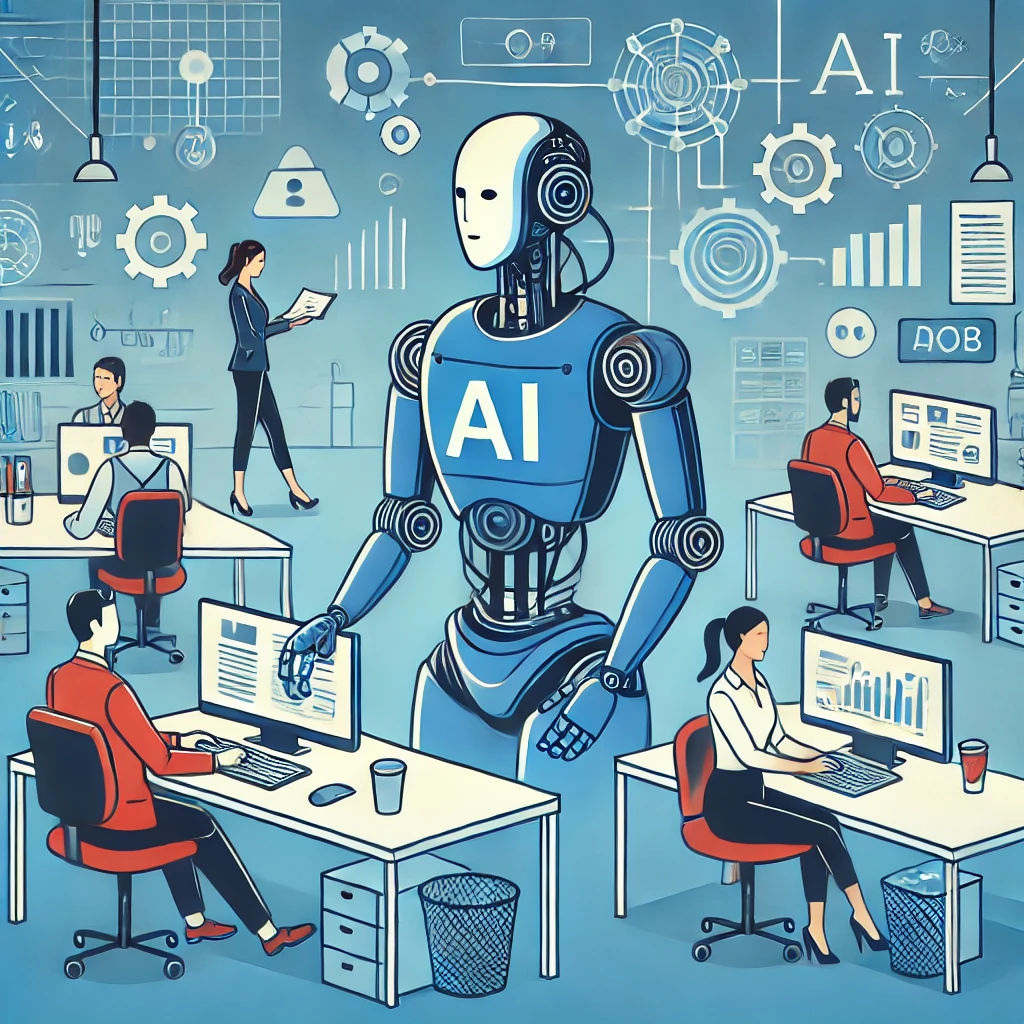The question on many people’s minds in today’s fast-evolving technological landscape is: Can AI take over jobs? As we stand in 2024, the advancements in artificial intelligence (AI) have revolutionized various industries, prompting both excitement and concern about the future of work. In this comprehensive article, we will delve into the capabilities of AI, its impact on employment, and the broader implications for society.
The Rise of AI in the Workplace
The integration of AI into the workplace is not a new phenomenon, but the speed and scale at which it is happening today are unprecedented. AI technologies are being employed to automate tasks, enhance productivity, and drive innovation across various sectors.
- Automation: One of the most significant impacts of AI is its ability to automate repetitive and mundane tasks. From data entry to manufacturing processes, AI can handle these tasks with greater efficiency and accuracy than human workers.
- Enhanced Decision-Making: AI systems can analyze vast amounts of data in real-time, providing valuable insights that inform decision-making. This is particularly useful in industries such as finance, healthcare, and logistics.
- Innovation: AI is a driving force behind innovation, enabling the development of new products and services. Companies are leveraging AI to create personalized customer experiences, optimize supply chains, and improve operational efficiency.
Jobs Most at Risk
While AI offers numerous benefits, it also poses a threat to certain types of jobs. Positions that involve routine, repetitive tasks are the most susceptible to automation. This includes roles in manufacturing, data processing, and customer service.
- Manufacturing: AI-powered robots are increasingly being used on production lines to perform tasks such as assembly, packaging, and quality control. These machines can work tirelessly and with a high degree of precision, reducing the need for human labor.
- Data Processing: Jobs that involve processing large volumes of data, such as data entry and basic analysis, are at risk of being automated. AI systems can process and analyze data much faster than humans, and with fewer errors.
- Customer Service: AI chatbots and virtual assistants are becoming more sophisticated, capable of handling a wide range of customer inquiries. This reduces the need for human customer service representatives, especially for routine queries.
Jobs That Are Safe
Despite the potential for job displacement, there are several types of jobs that are likely to remain safe from AI automation. These positions typically require complex problem-solving, creativity, and emotional intelligence.
- Creative Professions: Jobs that involve creativity and original thinking, such as those in the arts, design, and innovation, are less likely to be automated. AI can assist in these fields, but it cannot replicate human creativity and intuition.
- Healthcare: While AI can assist with diagnostics and data analysis, healthcare professionals such as doctors, nurses, and therapists rely on human empathy and interaction, which AI cannot replace.
- Education: Teaching requires a high level of interpersonal skills and the ability to adapt to the needs of individual students. While AI can provide supplementary tools, it cannot replace the role of a human educator.
The Future of Work
The future of work in the age of AI is a topic of much debate. While AI has the potential to displace certain jobs, it also creates new opportunities. The key to navigating this transition lies in adaptation and reskilling.
- Reskilling and Upskilling: As AI continues to evolve, there will be a growing demand for workers who possess advanced technical skills. Reskilling and upskilling programs can help workers transition into new roles that require these skills.
- Human-AI Collaboration: Rather than viewing AI as a threat, it is more productive to see it as a tool that can augment human capabilities. In many industries, AI can handle routine tasks, allowing humans to focus on more strategic and creative work.
- New Job Creation: AI is also driving the creation of entirely new job categories that did not exist before. This includes roles in AI development, data science, and AI ethics, among others.
Ethical Considerations
The deployment of AI in the workplace raises several ethical considerations that must be addressed to ensure a fair and equitable transition.
- Bias and Discrimination: AI systems are only as good as the data they are trained on. If the training data contains biases, the AI can perpetuate these biases in its decisions, leading to discrimination in hiring, promotions, and other areas.
- Privacy: The use of AI to monitor employee performance and behavior raises privacy concerns. It is important to strike a balance between leveraging AI for efficiency and respecting the privacy rights of workers.
- Fairness: As AI takes over certain tasks, it is crucial to ensure that the benefits of AI are distributed fairly. This includes providing support and opportunities for workers who may be displaced by AI.
Conclusion
In 2024, the question of whether AI can take over jobs is more relevant than ever. While AI has the potential to displace certain types of work, it also creates opportunities for new roles and ways of working. The key to navigating this transition lies in embracing change, investing in education and training, and addressing the ethical considerations that come with AI deployment.
At aiforthewise.com, we strive to provide you with the latest insights and practical advice on AI technology. By understanding the capabilities and limitations of AI in the workplace, you can better navigate the complex landscape of modern technology. Let AI Raise Your Wisdom. Remember to subscribe to our newsletter for more insights and practical tips on harnessing the power of AI in your daily life.
